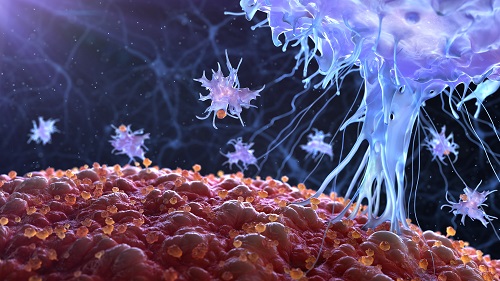April 25, 2019 (Medical News Today)
A recent study published in the journal, Nature Communications, has found biological changes that alter gene and cell activity within the immune system to otherwise normal airway tissue, may predict the development of lung cancer.
The leader of this study Avrum E. Spira, who is a professor of medicine, pathology, and bioinformatics from the Boston University School of Medicine in Massachusetts, was hoping to find differences in airway tissues prior to the development of precancerous signs. Dr. Spira and his team followed a group of current or past smokers for multiple years and monitored precancerous lesions from their airway tissue to see if the lesions became cancerous over time. They were able to identify four different molecular subtypes of these precancerous lesions, with these subtypes having distinctive tissue and immune system qualities. One subtype, named the “Proliferative subtype,” was found to have a high risk for developing lung cancer due to low activity in genes for specific types of immune cells.
With lung cancer being the deadliest cancer and accounting for 1.76 million deaths in 2018, Dr. Spira hopes that this research is a stepping stone towards learning how to treat and catch lung cancer in its earliest stages.
Furthermore, it may lead to improved ways of monitoring smokers and their risk for developing lung cancer, and lead to the development of drugs that boost the immune system and prevent lung cancer altogether.
















Leave a Reply